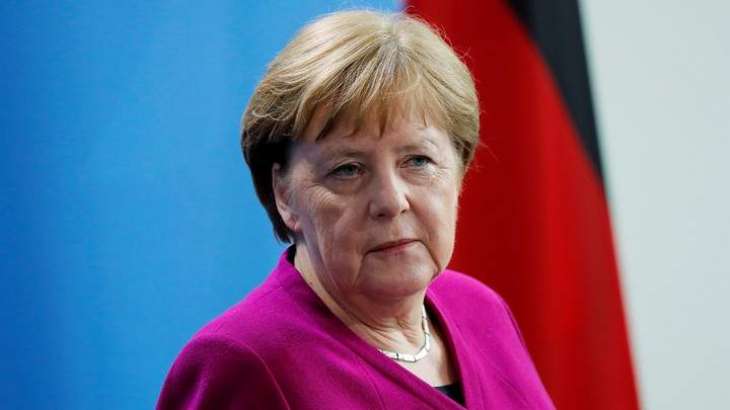Outgoing German Chancellor Angela Merkel will remain at the helm of the government while the coalition negotiations go in full swing after the latest elections, with indications that formation of new cabinet will be concluded sooner, Nils Diederich, German political scientist, professor at the Free University of Berlin, told Sputnik. after the latest elections
BERLIN (Pakistan Point News / Sputnik - 27th September, 2021) Outgoing German Chancellor Angela Merkel will remain at the helm of the government while the coalition negotiations go in full swing after the latest elections, with indications that formation of new cabinet will be concluded sooner, Nils Diederich, German political scientist, professor at the Free University of Berlin, told Sputnik. after the latest elections
The voting to the Bundestag was held in Germany on September 26. As the parties are negotiating to create a coalition, Merkel is due to remain in her post under the national Constitution. While there are formally no limits on terms of forming a coalition, the record high was six months in the 2017 elections.
The parties are determined to prevent this scenario, Diederich is convinced.
"I think that all the participants this year want to avoid such a marathon. And besides, the Free Democrats (FDP, the party which prevented the creation of the first coalition in 2017) will lose confidence if they go to negotiations again and eventually withdraw from them. Therefore, now the situation is favorable for coalition negotiations between the Social Democrats (CSU), the Greens, and the Free Democrats. In the background, there are negotiations between the Social Democrats, the Greens, and the Left, but I think this is unlikely. In any case, I believe that everyone has a desire to make sure that the negotiations do not last as long as in 2017," the expert said.
Germany rarely sees elections as tense as this year's, he added.
No option of the future coalition should be ruled out, including the Grand coalition, that is, the government involving the CDU (the Christian Democratic Union of Germany)/CSU and the SPD, even though the leaders of CDU and SPD, Armin Laschet and Olaf Scholz, apparently rejected this path, speaking in favor of a three-way coalition.
Scholz is in favor of the CDU going to the opposition, Diederich noted.
"This means that he (Scholz) wants a coalition against the CDU. But this does not mean that he excludes a Grand coalition," he said.
The Grand coalition is possible despite all the signals from the parties, the expert said.
"The Social Democrats and the Greens clearly showed at the last round of debates of the candidates for the chancellor (post) that they would prefer to rule together. But they will probably need a coalition partner. They are either Free Democrats or the Left. But if nothing happens with both parties, then it is very likely that a CDU/CSU coalition with the Social Democrats will be necessary as the last option. I think this is unlikely, but it is not excluded," Diederich explained.
The SPD is leading in the race with nearly 26% of the votes, followed by the CDU with almost 19%, then the Greens with nearly 15%, the FDP with over 11%, and the Alternative for Germany gathering some 10%, according to the latest results of the electoral commission.




